What really is the difference between baking soda and baking powder? Read more to find out exactly how they work, as well as why they help with your baking.
I can still remember the excitement I had when I was younger as I pulled up a new recipe.
I would start grabbing all the ingredients of the pantry, then come to a screeching halt when I realized I was missing baking soda. The recipe called for it, but all I had was baking powder. What's the difference, right? I would toss the baking powder in, hoping for the best, and I would get frustrated when the recipe didn't taste quite right.
So are baking soda and baking powder not interchangeable? Let's chat about it in this post! I want to give you the knowledge you need to not make the same mistakes I did when baking.
With a few easy tips and tricks, you will understand how to effectively use both baking soda and baking powder in all your recipes.
Jump to:
The Purpose of Baking Soda and Baking Powder
From a fundamental level, both baking soda and baking powder are chemical leaveners. In baking, there are a few different types of leavening:
- Organic leavening (i.e. yeast)
- Mechanical leavening (i.e. meringue — whipping eggs to capture air bubbles)
- Chemical leavening (i.e. baking soda, baking powder)
Chemical leaveners are often used in quick breads and cakes to aerate or give rise to the baked product. As your baked good is baking, the chemical compounds release gases when they react with heat or water.
In general, most baked goods that do not call for yeast usually have some form of chemical leavener in the recipe. I'll get more into the other types of leavening another day!
Baking Soda
Baking soda, or sodium bicarbonate, is the most commonly used chemical leavener.
When baking, you must combine baking soda with an acid (such as buttermilk, vinegar, honey, fruit juice, or cream of tartar). Once combined, the acid helps the baking soda break down easily, causing the carbon dioxide to release and the leavening to occur.
When using baking soda, it's important to know that these chemical reactions start to occur as soon as the acid comes into contact with baking soda. Therefore, you should bake the dough immediately after mixing.
Last but not least, baking soda can leave a metallic taste in your food if you use too much, and it's actually almost four times stronger than baking powder.
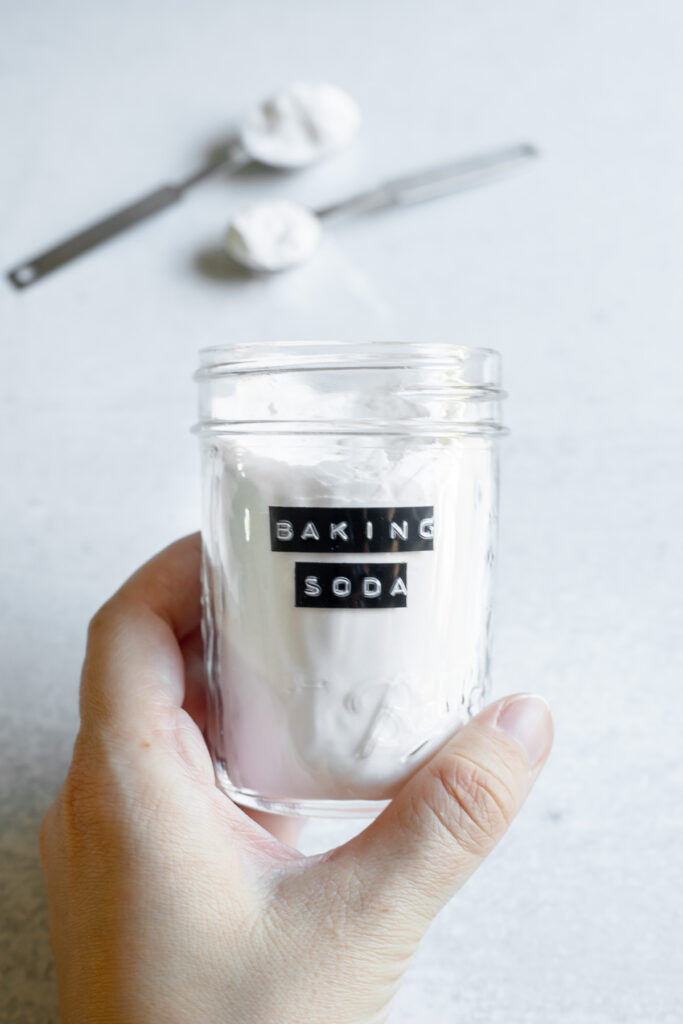
Baking Powder
In contrast, baking powder contains baking soda, an acid, and a dried starch that acts as a filler. Therefore, you do not have to worry about adding an acid like buttermilk or lemon juice to recipes that call for baking powder.
Most baking powders you will find in stores are double-acting, which means that the chemical reaction occurs twice: first when the baking powder interacts with a liquid, then again when exposed to heat.
The great part about doughs or batters made with baking powder is that you can prepare them in advance. This allows for a bit more flexibility when it comes to baking.
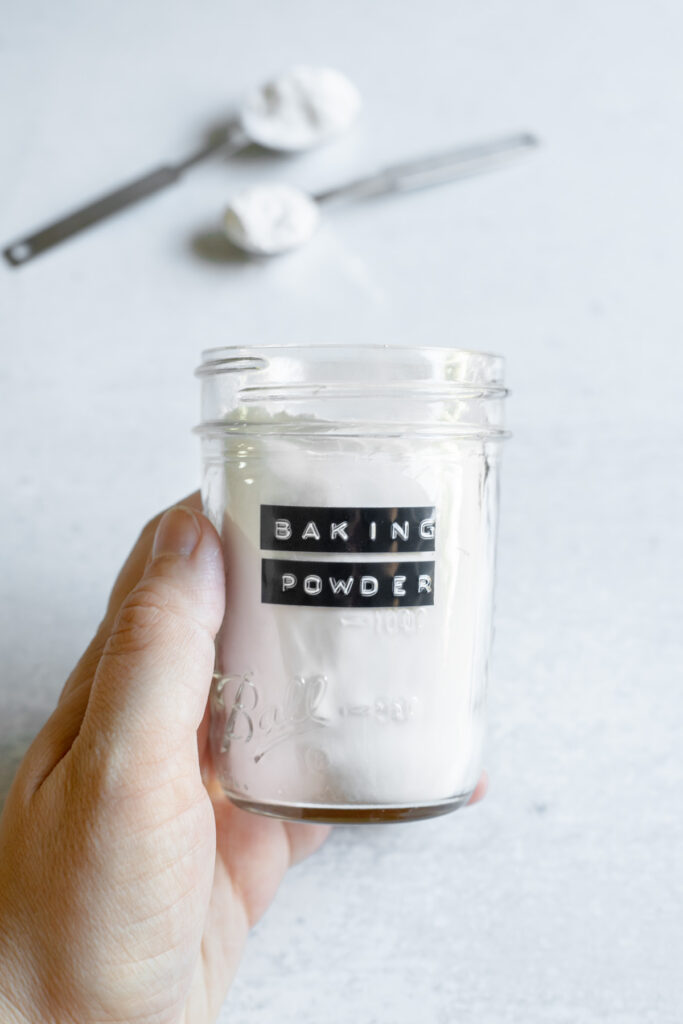
Why Some Recipes Call for Both
You will oftentimes find recipes that ask you to use both baking soda and baking powder. In these instances, the baking powder causes the vast majority of the leavening, while the baking soda neutralizes the acids, adds tenderness to the baked good, and assists with some of the leavening.
If your recipe has a lot of acid in it already and you only use baking powder, the finished baked good might taste too acidic. As you start making more recipes (and perhaps start to develop your own recipes), keep this in mind when using lots of acidic ingredients!
Make Sure They're Still Fresh
I know lots of us are guilty of keeping our baking soda and baking powder in our pantries for ages and ages... Do those expiration dates really matter? The answer is different for each product.
If unopened, baking soda should typically be good for about two years; if opened, you should toss the opened container after about six months.
You can easily test baking soda to see if it's still potent by tossing a spoonful of baking soda in a bowl with a little vinegar or lemon juice. If the mixture starts fizzing a lot, it means the baking soda is still functioning properly. If not, it means it's gone bad, and you might have to make a quick trip to the store.
On the other hand, baking powder expires much more quickly because it already has that acid added in. Make sure to pay attention to that expiration date and replace it as needed. Your baked goods will turn out better because of it!
To see if your baking powder is still working properly, toss a spoonful of it into a cup of hot tap water. The results will be pretty obvious — if it starts to bubble up, the baking powder is fresh; if not, time to buy some more.
Happy Baking!
I hope you have found this article helpful!
I know it can be a bit boring to get into the science behind baking, but having a basic understanding of how these ingredients work will really empower you to become a better baker. Now, you will be able to glance at a recipe and see why it calls for baking powder instead of baking soda.




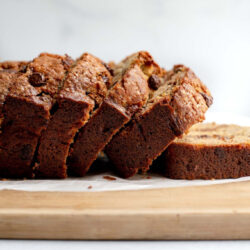


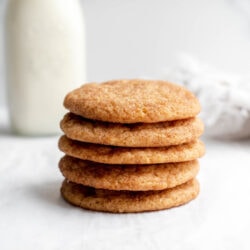


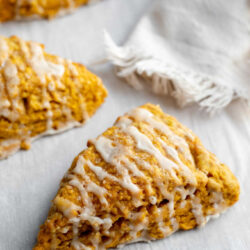


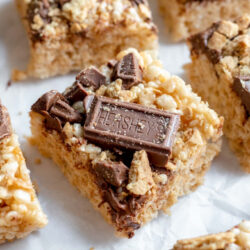
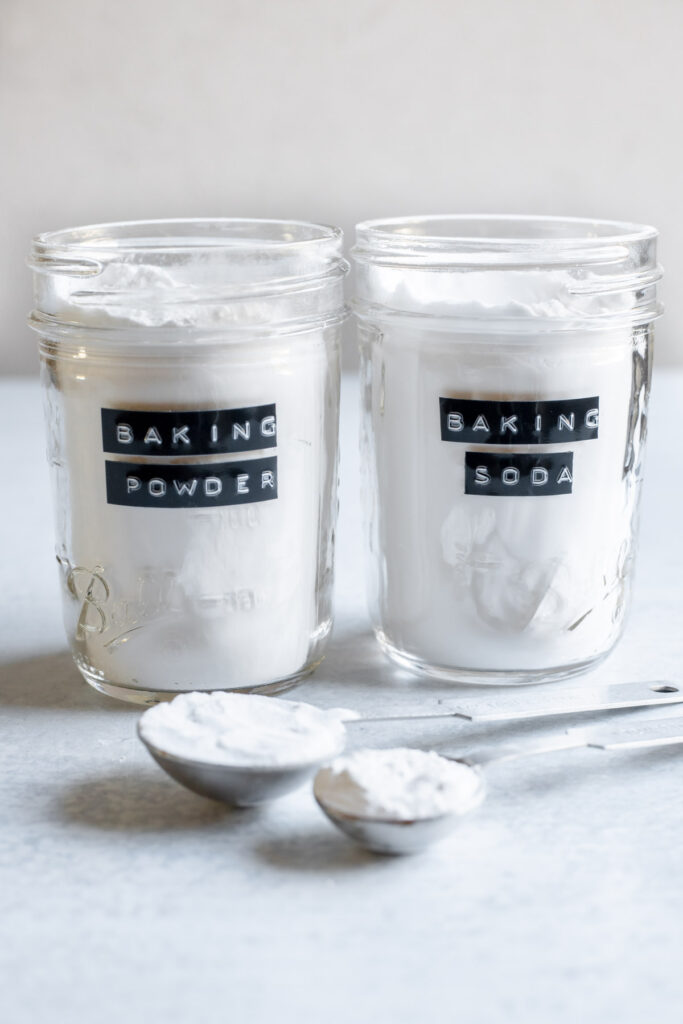
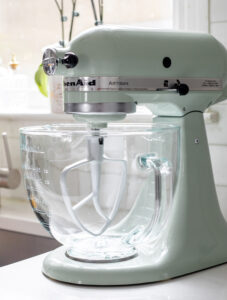
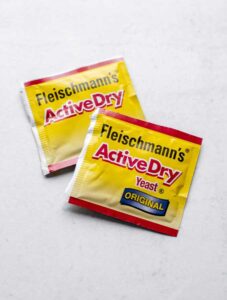
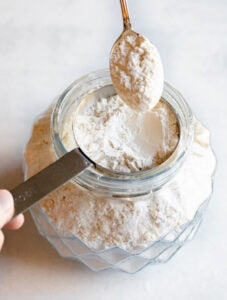



Thank you. This was very helpful!
I'm so glad you found the article helpful, Dale!
Thank You for your information on BS/BP
Very helpful
I'm glad you enjoyed the article, Eileen! 😊
Great article! I really love the science as a baker, it is like a lab in the kitchen at times.
I wonder about refrigeration of muffin and short dough batters for later use?
Thanks, Sheila — I'm glad you enjoyed the article! 😊 If the batter just has baking soda, I wouldn't recommend refrigerating it for later use. But if it has baking powder, you should be fine to do so!
Why is there only baking soda in chocolate chip recipes?
Hi, Halle! I think it just depends on what recipe you're looking at. I've found a number of chocolate chip cookie recipes that include both baking powder and baking soda, and I think you'd mostly have the most success using a combination of the two (especially the recipe doesn't have an acid in it).
I was just curious, how does freezing the dough affect the chemical reaction? You wrote that if your recipe contains acid you should bake right away, but I have a cookie recipe that has lemon and baking soda in it. Will freezing the dough prior to using it be affected by the freezing process?
Great question, Colleen! If you're making a recipe that has lemon and baking soda, freezing the dough would inhibit the chemical leavening reaction. I would recommend baking the dough right away. I hope that helps!
I was just asking a friend that question a few days ago. Thank you so much for clarifying this for me.
I'm so glad you found the article helpful, Karen!
I always did wonder why some recipes called for soda and powder together. It makes sense now. Thanks!
So glad you found the post helpful, Ruzeen!